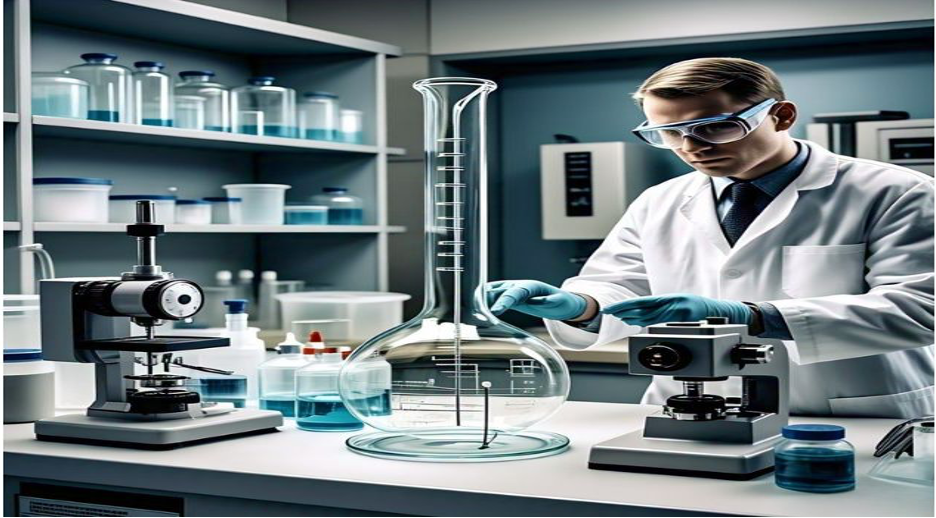Are You Using the Right Lab Reactor? Discover the Best Types for Your Research
25th Feb 2025
Laboratory reactors are essential tools for conducting controlled chemical reactions in research and development. These specialized vessels are designed to maintain specific temperature, pressure, and mixing conditions, allowing scientists to carry out experiments with high precision. Reactors play a crucial role in various fields, including pharmaceuticals, biotechnology, and industrial chemistry, driving innovation and scientific progress.
In laboratory environments, reactors facilitate the study of reaction kinetics, process optimization, and scaling up experiments for industrial applications. They are widely used in academic institutions, pharmaceutical research, and industrial R&D laboratories. These devices are vital for developing new compounds, testing substances, and producing small-scale prototypes for industrial processes. Without reactors, advancements in chemical and material sciences would be significantly hindered.

Laboratory reactors come in different types, each suited to specific research applications. Some are designed for batch processing, while others support continuous processes. The choice of reactor depends on factors such as experiment duration, chemical compatibility, and process control requirements. Understanding the purpose and functionality of different reactor types is crucial for optimizing laboratory workflows and achieving reliable results.
Types of Laboratory Reactors and Their Applications
Different laboratory reactors are designed with unique specifications to accommodate various chemical and biological processes. Factors such as temperature and pressure control, reaction scale, and experiment objectives determine the most suitable reactor type. Below are common types of laboratory reactors and their primary applications:
Batch Reactors
- Ideal for small-scale research under controlled conditions.
- Used in chemical synthesis, pharmaceutical development, and compound testing.
- Allows researchers to modify conditions between experiments for comparative analysis.
Continuous Reactors
- Suitable for automated processes requiring high-volume production.
- Commonly used in industries such as petrochemicals and food processing.
- Designed for long-duration reactions with consistent operational conditions.
Glass vs. Stainless Steel Reactors
- Glass Reactors: Preferred for academic research and fine chemical synthesis due to their transparency and chemical resistance.
- Stainless Steel Reactors: More durable and capable of withstanding high-pressure and high-temperature reactions, making them suitable for industrial applications.
Specialized Reactors
- High-Pressure Reactors: Designed for experiments involving gases or extreme conditions.
- Photochemical Reactors: Used for light-induced reactions, commonly applied in material science and pharmaceutical research.
- Microreactors: Compact devices offering high efficiency and rapid heat transfer, ideal for process optimization and experimental research.
The choice of reactor depends on the experiment's requirements, accuracy demands, and industry-specific applications. Selecting the appropriate reactor ensures efficiency, precision, and cost-effectiveness in laboratory operations.
Key Considerations for Choosing the Right Reactor
Selecting the right reactor is crucial for obtaining accurate and reproducible results. Key factors to consider include:
- Material Compatibility: Different materials react differently to chemicals. For example, glass reactors are ideal for handling corrosive substances, while stainless steel reactors are better suited for high-pressure applications.
- Process Requirements: Consider factors such as temperature control, pressure range, reaction time, and scalability.
- Safety and Efficiency: A well-designed reactor enhances safety, minimizes experimental errors, and improves operational efficiency.
Poorly chosen reactors can lead to inaccurate results, inefficiencies, and safety risks in laboratory settings. Researchers must evaluate their experimental needs carefully to select reactors that align with their scientific goals.
Conclusion
Laboratory reactors are indispensable tools in scientific research, supporting advancements in biotechnology, pharmaceuticals, and industrial chemistry. With a range of reactor types available, researchers can select the best equipment based on their experimental needs. Considering factors such as material compatibility, temperature control, and scalability ensures reliable and efficient laboratory operations. By investing in the right reactors, laboratories can enhance experimentation, improve productivity, and foster scientific innovation.
